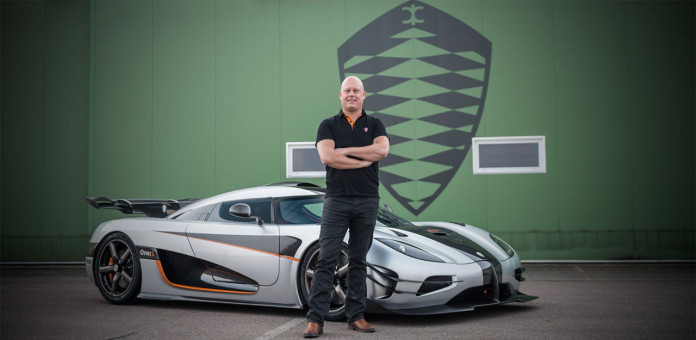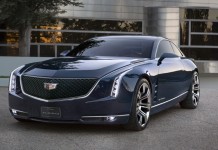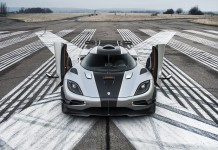In an interview with Carbuzz, Christian von Koenigsegg mentioned a new project he and his team, along with Chinese manufacturer Qoros, are working on. It’s a 1.6-liter engine that is capable of producing more than 400 horsepower. The principals, ideas and technology that work so well on cars such as the Agera and One:1 were applied to this tiny engine, and they are predicting astonishing results. Sadly, Qoros has no plans to use this exact engine in a production car, but they will apply what they learn to engines in the future.
The engine in the Agera can make 228 hp/liter, and this is the highest horsepower per liter from any production car. It makes 1140 horsepower out of only 5.0 liters, which is crazy. The way they do this is efficiency, of course. The engines in the Agera are madly efficient, and they figure if they apply the same efficiency to a smaller engine, they’ll see great horsepower as well as other perks, such as fuel economy. The only issues that come forth are heat dissipation. The heat in the larger displacement engine more easily dissipates than in a 1.6 liter. Because of this, they reduced the bore and elongated the stroke, which lessened the heat loss. Then, they used forged rods, pistons, and very high quality valves. Running the valves, then, will be the Freevalve technology which Koenigsegg has pioneered, and this will increase the efficiency by another 3-4%.
So in the future, if your new Qoros is making 400 horsepower out of a 1.6, you can thank Christian von Koenigsegg. Also, when you start seeing insane stories of people swapping a strange Chinese motor into their Miatas and dragsters, you’ll understand why.
Koenigsegg Pictures Gallery
Written by: Justin Davis









It seems that 3-4% increase in efficiency is not so dramatic. Perhaps the figure is wrong? Compare with FreeValve’s statement on their web page: “At low RPMs, dual intake valve openings provides maximum intake runner inertia with low temperature increase effectively increasing volumetric efficiency up to 30 %” and “We believe that internal combustion engine efficiency will improve more in the next ten years than the previous one hundred.”